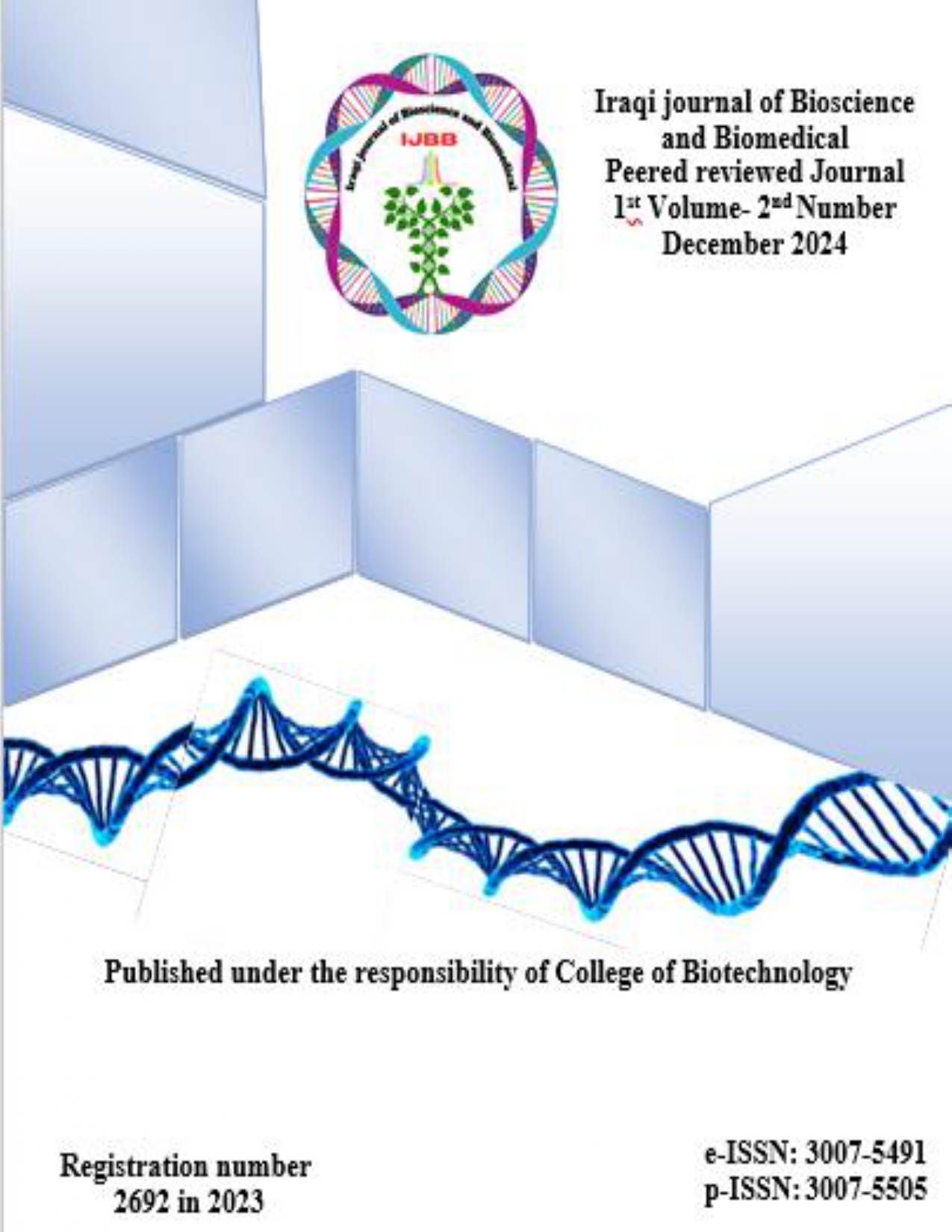Evaluate the prevalence of the Virulence Genes (lptD & lptE) among Pseudomonas aeruginosa isolated from different infectious origins
Abstract
Pseudomonas aeruginosa is a Gram-negative aerobic bacterium that has come out as one of the most nosocomial pathogens. The main goal of this research project was to determine genotypes associated with LPS transport and antibiotic-resistance genes (lptD & lptE) of clinical isolates of P. aeruginosa. Characterization of the strains of P. aeruginosa that are widespread in Iraqi patients was done by collecting 140 clinical samples from wounds, burns, ear swaps, sputum, and urinary tract infections taken from seven general hospitals in Baghdad. Isolation methods for identifying P. aeruginosa relied on culture methods, biochemical tests, and VITEK-2 system. The results showed that 102 (72.85%) different samples were P. aeruginosa depending on the conventional culture method, while the rest 38 (27.14%) samples were from other strains isolates. It was proven that 50 (35.7%) isolates were resistant to the largest number of antibiotics. In this study, molecular techniques to identify P. aeruginosa including DNA extraction and PCR were used.. To determine the presence of the lptD and lptE genes, specific regions of DNA were amplified by PCR. In conclusion, the prevalence of antibiotic-resistant P. aeruginosa strains among hospitalized patients presents a significant challenge in managing infections. The presence of these genes was found to be closely associated with LPS transport and hence the ability of these bacteria to resist antibiotics.

Downloads
Published
Issue
Section
License
Copyright (c) 2024 Iraqi Journal of Bioscience and Biomedical

This work is licensed under a Creative Commons Attribution-NonCommercial-NoDerivatives 4.0 International License.




